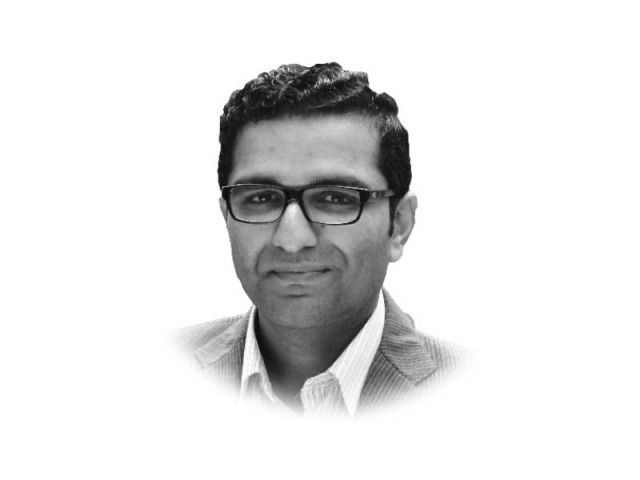The danger within
Trump’s victory has clearly shown how academia has become increasingly out of touch with the people

The writer teaches at IT University Lahore and is the author of A Princely Affair: The Accession and Integration of the Princely States of Pakistan, 1947-55. He tweets @BangashYK
First, Trump’s victory clearly shows that the ‘liberal’ establishment, or elite is increasingly out of touch with the common person and is in decline. The victory of Brexit, the ascendency of Trump, the popularity of Marie LaPen in France, and the similar rise of right wing forces across Europe is testament that the common person is no longer enamoured by the liberal democratic rhetoric. In the developing world the era of ‘Modi’ has changed dynamics in the world’s largest democracy and the strength of Erdogan in Turkey has further given it heart. Hence, in fledgling democracies like Pakistan these realities can even undermine the whole democratic project itself. Already in Pakistan elected leaders have voiced an opinion that a dictatorship might be better than the current dispensation, and so the rise of reactionary forces around the world only serves to undermine the democratic project in the country. With a large majority of people even unaware of what democracy means—and what its long term dividends are, and with their ‘90 days’ limits for everything fixing itself, the chances of the democratic project succeeding are even less. This should make us concerned and worried.
Secondly, equitable growth, which does not simply focus on the middle class, is the most important issue in the world. For a long time, liberal democracies focused on the growth and prosperity of the middle class, but it is the concern of the classes beyond that—the working class especially, which is at the core of this upheaval, and we must take cognisance of this change. In Pakistan, the issues and concerns of the working class have been at the back burner for a long time, and all mainstream parties seem to have lost track of them. Hence, the pitch is wide open for their anger to be channelled through other means, which might not bode well for the continuation of democracy in the country.
Thirdly, Trump’s victory has clearly shown how academia has become increasingly out of touch with the people. I had been always sceptical about the unqualified left lean of academia, but this result has thrown up several critical questions for the hallowed corridors. Academia is supposed to reflect the issues in the society, especially of the marginalised and underrepresented, but in this case it seems that it not only misinterpreted the concerns of a large number of people, it was oblivious to it. All the jargon of political scientists, their equations, data sources, and projections were wrong, and they have now been left bewildered by the reality of the situation. In the Pakistani context, our academia looks up to Western institutions and tries to emulate them. Unlike our Western counterparts, we have long been at the margins of society and discourse, and so this great challenge to academia is even more ominous for us. The time has come to seriously re-evaluate how the academy views and analyses issues, and how it understands, shapes and leads discourse.
Trumps victory is a time of critical introspection and reassessment, especially concerning things we had taken for granted. At the moment we have been unable to even understand, let alone assess this emerging scenario. Especially for Pakistan, the threat to our nascent democracy is patent and unless political parties take cognisance of the ground realities, our future will be bleak.
Published in The Express Tribune, November 14th, 2016.
Like Opinion & Editorial on Facebook, follow @ETOpEd on Twitter to receive all updates on all our daily pieces.















COMMENTS
Comments are moderated and generally will be posted if they are on-topic and not abusive.
For more information, please see our Comments FAQ